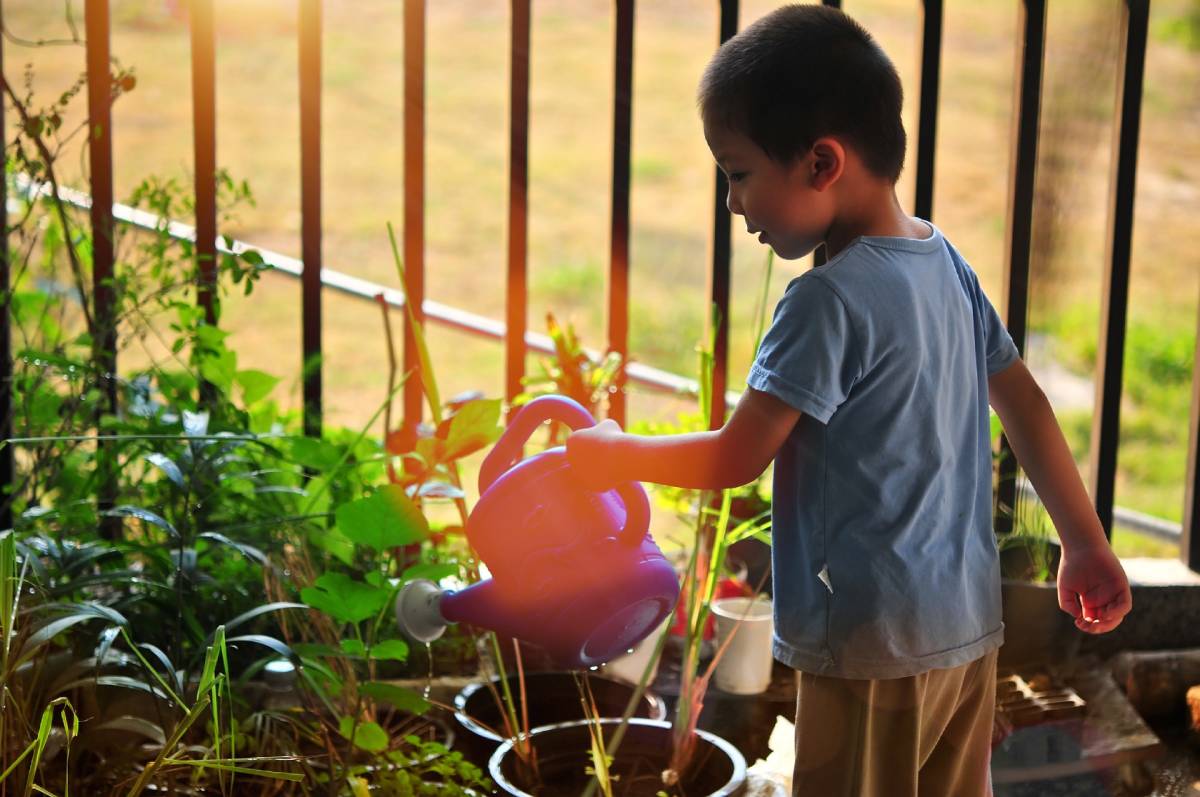
Guest article provided by: thelifesynthesis.com
Everyone knows the basic stuff about being a good parent. Things like unconditional love, sacrifice, sleepless nights etc…
But in today’s world, the nerds are always reading, studying, science-ing, and they’ve been coming up with some pretty interesting and unknown information about how to raise the best kids possible.
Our little superheroes don’t just grow into stellar members of society on their own, and it’s our job to make sure they have everything they need to face this *expletive deleted* world we live in. 🙂
Personal development for kids is crucial when raising strong children so…
Here are 9 things kids need to grow up nicely in the modern world that nobody knows…at least I didn’t.
1. Sensory Integration Activities
Sensory integration activities involve engaging children in experiences that stimulate their senses, such as touch, sight, sound, taste, and smell. These activities help children develop their sensory processing skills, which are essential for learning, attention, and behavior regulation.
According to experts in occupational therapy, such activities can improve sensory integration by encouraging the brain to organize and interpret sensory information effectively.
Sensory integration activities may include playing with textured materials, participating in sensory bins or sensory rooms, or engaging in activities that stimulate multiple senses simultaneously.
These experiences promote sensory exploration, body awareness, motor skills, and cognitive development in children.
2. Risk-Taking Opportunities
Controlled risk-taking opportunities play a crucial role in children’s development by allowing them to explore, experience challenges, and learn to overcome obstacles.
Engaging in supervised physical activities that involve a degree of risk, such as climbing structures, balancing on beams, or navigating obstacle courses, can foster the development of important cognitive, social, and emotional skills.
Experts in child psychology suggest that such experiences promote risk assessment abilities, problem-solving skills, self-confidence, and resilience. By engaging in these activities, children learn to assess risks, make decisions, and cope with uncertainty, contributing to their overall development and growth.
3. Multilingual Exposure
Early exposure to multiple languages, even if a child is not raised in a multilingual environment, can offer cognitive advantages and shape brain development.
Research conducted by experts in developmental psychology and linguistics has shown that bilingualism enhances executive functions, such as cognitive flexibility, working memory, and attentional control.
Bilingual children demonstrate increased mental flexibility and adaptability, as they regularly engage in language switching and inhibition processes.
Moreover, exposure to multiple languages from an early age can improve phonological awareness, metalinguistic skills, and even lead to better performance in certain cognitive tasks. Language exposure can occur through various means, including immersion programs, language classes, or interactions with multilingual individuals.
Such exposure fosters linguistic diversity, cultural appreciation, and cognitive benefits for children as they navigate an increasingly globalized world.
4. Mindfulness and Meditation
Introducing mindfulness and meditation practices to children can have a profound impact on their well-being and overall development. Mindfulness involves paying attention to the present moment with curiosity and without judgment.
Research from experts in child psychology suggests that mindfulness and meditation can enhance children’s emotional regulation, attention span, and cognitive abilities.
Regular practice of mindfulness techniques has been associated with improvements in executive functions, self-control, stress reduction, and social-emotional skills. By teaching children to be aware of their thoughts, emotions, and bodily sensations, mindfulness promotes self-awareness, empathy, and resilience.
Various mindfulness activities can be introduced, such as guided meditations, breathing exercises, or mindful movement practices, tailored to the child’s age and developmental level.
5. Community Service and Philanthropy
Involving children in community service and philanthropic activities from an early age cultivates empathy, compassion, and a sense of social responsibility. According to experts in child development, engaging in acts of kindness and giving back to the community can positively shape children’s character, values, and moral development.
Community service opportunities can include volunteering at local charities, participating in environmental initiatives, or engaging in fundraising events.
By participating in these activities, children gain a deeper understanding of social issues, develop empathy for others, and learn the importance of making a positive impact in their communities.
In addition to fostering a sense of gratitude and social consciousness, community service experiences provide valuable opportunities for children to interact with individuals from diverse backgrounds and cultivate their interpersonal skills.
6. Sleep Environment Optimization
Beyond the recommended hours of sleep, optimizing a child’s sleep environment can significantly impact the quality of their rest. Research by sleep experts highlights the importance of creating a conducive sleep environment for optimal sleep hygiene.
Factors to consider include reducing exposure to artificial light, maintaining a cool and quiet sleeping environment, establishing a consistent bedtime routine, and minimizing stimulating activities close to bedtime.
Adequate sleep is essential for children’s physical growth, cognitive functioning, emotional well-being, and overall health.
By prioritizing a sleep-conducive environment, parents can support their children in achieving restorative sleep, which in turn positively influences their attention span, memory consolidation, learning abilities, and mood regulation.
Implementing consistent sleep routines and creating a tranquil sleep environment contributes to the overall well-being and development of children.
7. Musical Training
Learning to play a musical instrument offers a range of cognitive and emotional benefits for children.
Scientific research indicates that musical training positively influences various aspects of development, including language processing, working memory, fine motor skills, and creativity.
According to experts in neuroscience and psychology, engaging in musical activities stimulates multiple brain regions, fostering neural connections and enhancing cognitive functions. Learning an instrument requires coordination, concentration, and discipline, which contribute to improved executive functions and attention skills.
Moreover, musical training promotes emotional expression, self-confidence, and social interaction, as children often participate in group performances or collaborate with others.
Whether through formal lessons or informal music exploration, incorporating musical training into a child’s development can have long-lasting positive effects.
8. Exposure to Natural Environments
Regular access to natural environments, such as parks, gardens, or forests, benefits children’s physical and mental health.
Research suggests that exposure to nature positively impacts attention restoration, stress reduction, cognitive function, creativity, and overall well-being.
Experts in environmental psychology and child development highlight the importance of green spaces for children’s play, exploration, and relaxation.
Nature offers diverse sensory experiences, such as the sights, sounds, and textures found outdoors, which stimulate children’s senses and support their cognitive development.
Additionally, spending time in nature encourages physical activity, which promotes motor skills, physical fitness, and a healthier lifestyle.
Whether through outdoor play, nature walks, or gardening, incorporating regular exposure to natural environments enriches children’s experiences and contributes to their holistic development.
9. Incorporating Mindful Technology Use
In the digital age, mindful and intentional technology use is crucial for children’s development. Research by experts in child psychology and media studies emphasizes the importance of guiding children’s technology usage to maximize benefits and minimize potential risks.
Promoting media literacy helps children critically evaluate and understand the content they consume. Setting limits on screen time ensures a balanced lifestyle and encourages engagement in other activities.
Encouraging quality digital content, such as educational apps and interactive media, enhances learning opportunities and cognitive development. Balancing screen time with physical activity, social interactions, and imaginative play supports well-rounded development.
Additionally, fostering open communication about online safety, responsible digital citizenship, and potential risks helps children navigate the digital world with awareness and confidence. By integrating mindful technology use into children’s lives, parents can harness the benefits of technology while promoting their overall well-being and development.
Photo by pixabay.com
